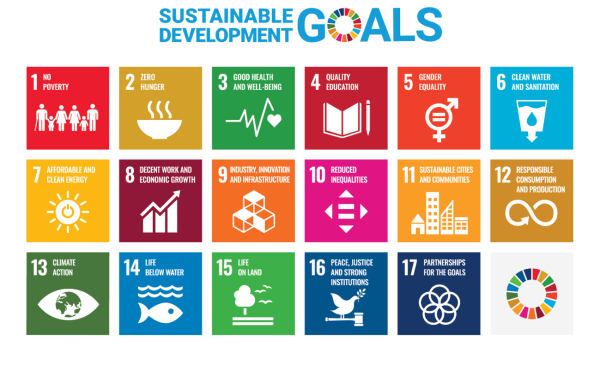The Sustainable Development Goals (SDGs) set by the United Nations highlights the biggest issues faced by the world and are the blueprint to achieve a better and more sustainable future by 2030.
Renesas supports the SDGs and is taking action against 13 goals out of the 17 goals set by the UN. We believe it is our responsibility to help achieve these goals and are making contributions in any way possible.
| SDG | Target | Renesas’ Initiatives on Sustainability |
|---|---|---|
Image
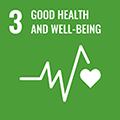
| 3.9 By 2030, substantially reduce the number of deaths and illnesses from hazardous chemicals and air, water and soil pollution and contamination | Waste Reduction Efforts Eco-Product Initiatives |
Image
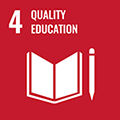
| 4.3 By 2030, ensure equal access for all women and men to affordable and quality technical, vocational and tertiary education, including university 4.4 By 2030, substantially increase the number of youth and adults who have relevant skills, including technical and vocational skills, for employment, decent jobs and entrepreneurship | Social Contribution Initiatives Employee Growth and Engagement |
Image
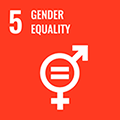
| 5.1 End all forms of discrimination against all women and girls everywhere 5.5 Ensure women’s full and effective participation and equal opportunities for leadership at all levels of decision-making in political, economic and public life 5.b Enhance the use of enabling technology, in particular information and communications technology, to promote the empowerment of women 5.c Adopt and strengthen sound policies and enforceable legislation for the promotion of gender equality and the empowerment of all women and girls at all levels | Diversity, Equity & Inclusion Social Contribution Initiatives |
Image
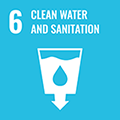
| 6.3 By 2030, improve water quality by reducing pollution, eliminating dumping and minimizing release of hazardous chemicals and materials, halving the proportion of untreated wastewater and substantially increasing recycling and safe reuse globally 6.4 By 2030, substantially increase water-use efficiency across all sectors and ensure sustainable withdrawals and supply of freshwater to address water scarcity and substantially reduce the number of people suffering from water scarcity 6.6 By 2020, protect and restore water-related ecosystems, including mountains, forests, wetlands, rivers, aquifers and lakes 6.b Support and strengthen the participation of local communities in improving water and sanitation management | Conserving Water Social Contribution Initiatives |
Image
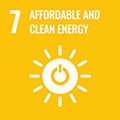
| 7.2 By 2030, increase substantially the share of renewable energy in the global energy mix 7.3 By 2030, double the global rate of improvement in energy efficiency 7.a By 2030, enhance international cooperation to facilitate access to clean energy research and technology, including renewable energy, energy efficiency and advanced and cleaner fossil-fuel technology, and promote investment in energy infrastructure and clean energy technology | Climate Change Initiatives Environmental Initiatives Eco-Product Initiatives |
Image
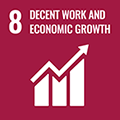
| 8.2 Achieve higher levels of economic productivity through diversification, technological upgrading and innovation, including through a focus on high-value added and labour-intensive sectors 8.5 By 2030, achieve full and productive employment and decent work for all women and men, including for young people and persons with disabilities, and equal pay for work of equal value 8.7 Take immediate and effective measures to eradicate forced labour, end modern slavery and human trafficking and secure the prohibition and elimination of the worst forms of child labour, including recruitment and use of child soldiers, and by 2025 end child labour in all its forms 8.8 Protect labour rights and promote safe and secure working environments for all workers, including migrant workers, in particular women migrants, and those in precarious employment | Employee Growth and Engagement Human Rights Safe and Healthy Working Environment Human Resources Data |
Image
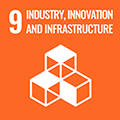
| 9.4 By 2030, upgrade infrastructure and retrofit industries to make them sustainable, with increased resource-use efficiency and greater adoption of clean and environmentally sound technologies and industrial processes, with all countries taking action in accordance with their respective capabilities 9.5 Enhance scientific research, upgrade the technological capabilities of industrial sectors in all countries, in particular developing countries, including, by 2030, encouraging innovation and substantially increasing the number of research and development workers per 1 million people and public and private research and development spending | Climate Change Initiatives Eco-Product Initiatives Innovation Our Sustainable Products and Solutions |
Image
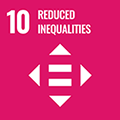
| 10.2 By 2030, empower and promote the social, economic and political inclusion of all, irrespective of age, sex, disability, race, ethnicity, origin, religion or economic or other status 10.3 Ensure equal opportunity and reduce inequalities of outcome, including by eliminating discriminatory laws, policies and practices and promoting appropriate legislation, policies and action in this regard | Diversity, Equity & Inclusion Human Rights |
Image
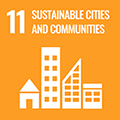
| 11.6 By 2030, reduce the adverse per capita environmental impact of cities, including by paying special attention to air quality and municipal and other waste management | Waste Reduction Efforts |
Image
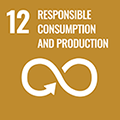
| 12.2 By 2030, achieve the sustainable management and efficient use of natural resources 12.4 By 2020, achieve the environmentally sound management of chemicals and all wastes throughout their life cycle, in accordance with agreed international frameworks, and significantly reduce their release to air, water and soil in order to minimize their adverse impacts on human health and the environment 12.5 By 2030, substantially reduce waste generation through prevention, reduction, recycling and reuse 12.6 Encourage companies, especially large and transnational companies, to adopt sustainable practices and to integrate sustainability information into their reporting cycle | Environmental Initiatives Chemical Substances Waste Reduction Efforts Eco-Product Initiatives Biodiversity Conservation Activities |
Image
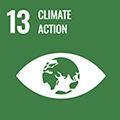
| 13.1 Strengthen resilience and adaptive capacity to climate-related hazards and natural disasters in all countries 13.3 Improve education, awareness-raising and human and institutional capacity on climate change mitigation, adaptation, impact reduction and early warning | Climate Change Initiatives Eco-Product Initiatives |
Image
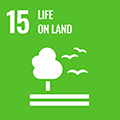
| 15.3 By 2030, combat desertification, restore degraded land and soil, including land affected by desertification, drought and floods, and strive to achieve a land degradation-neutral world 15.4 By 2030, ensure the conservation of mountain ecosystems, including their biodiversity, in order to enhance their capacity to provide benefits that are essential for sustainable development | Waste Reduction Efforts Eco-Product Initiatives |
Image
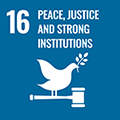
| 16.5 Substantially reduce corruption and bribery in all their forms 16.7 Ensure responsive, inclusive, participatory and representative decision-making at all levels 16.b Promote and enforce non-discriminatory laws and policies for sustainable development | Governance Human Rights |
